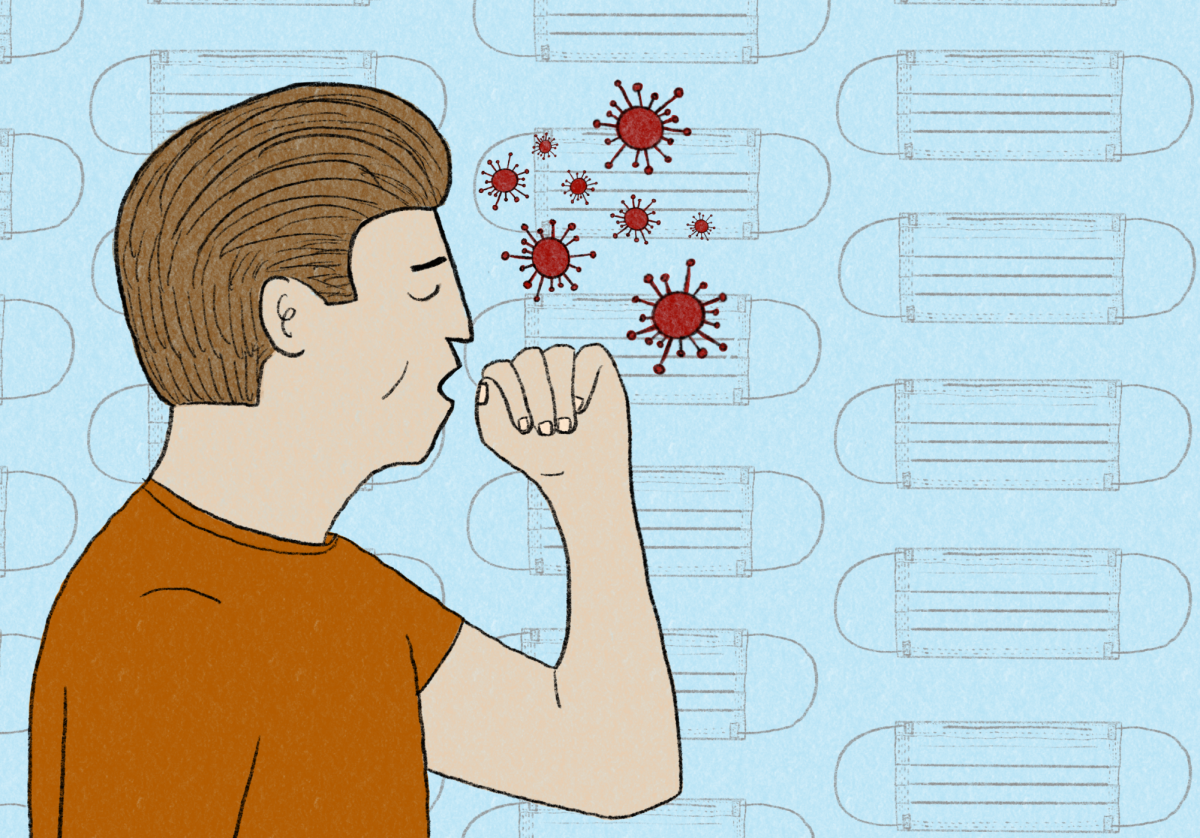While we are no longer facing a national public health emergency, the pandemic is not over. As UT students return to school, COVID-19 is on the rise. Earlier this month, Austin Public Health reported an increase in coronavirus in Austin’s wastewater. Students must practice COVID-19 safety to decrease their chance of getting long coronavirus.
COVID-19 peaking at the end of the summer is not surprising to experts like Dr. Jaquelin Dudley, associate director of the LaMontagne Center for Infectious Disease and professor of molecular biosciences and oncology.
“The pandemic is certainly not finished,” Dudley said. “It looks like COVID is probably going to have two peaks, one in the summertime and one in the winter time.”
The virus is spread through person-to-person contact. Dudley said coming back to school and being in crowded, air conditioned rooms creates a perfect environment for it to thrive. Although the large percentage of us who have experienced the virus can make it seem less alarming, the threat of long coronavirus still looms.
“Long COVID is a fairly complicated kind of syndrome,” said Dr. Terrance Hines, executive director and chief medical officer for University Health Services. “It can include a wide range of ongoing health problems after the initial COVID infection and can last for weeks, months and potentially even years.”
The risk of long COVID-19 is non-negligible once you’ve had the virus. Your overall chance of getting long COVID actually increases if you get the virus twice. The World Health Organization reports that 10% to 20% of individuals who contracted COVID-19 may experience long coronavirus, and young adults are not excluded from this risk.
“We clearly see that most people are getting long COVID even if they are vaccinated, even if they are young and healthy,” said Dr. Michael Brode, medical director of the UT Health Austin post-COVID-19 Program.
In order to stop the spread of COVID-19 on our campus and prevent long coronavirus, we have to protect ourselves against the virus. Taking action can be as simple as wearing a mask in crowded classes, getting the latest vaccinations and testing if you have symptoms. Preventative measures are a small cost to pay to protect yourself from long COVID-19 and its lasting effects.
When caring for patients with long COVID-19, Brode said he typically sees chronic fatigue syndrome, a condition that causes exhaustion and brain fog. Many are also affected by post-exertional malaise, becoming easily tired from normal activity. Some even experience neurologic symptoms like nerve pain, headaches or difficulty managing heart rate and blood pressure.
“(These symptoms) have profound effects,” Brode said. “We know it can affect cognitive performance in school, the ability to participate in classes or even for athletes, their ability to participate.”
While taking these precautions may feel like an unnecessary burden, it’s important to realize that your health is at risk. Being young and healthy is not enough to prevent this virus from impacting you for the rest of your life.
“Often (students) do not exhibit good life habits such as drinking too much, not getting enough sleep or not eating properly, and all of those things contribute to your immune status,” Dudley said. “That has to do with your ability to recover from an infection. It’s important for students to remember that they are vulnerable.”
Muthukrishnan is a government and race, indigeneity and migration sophomore from Los Gatos, California.















